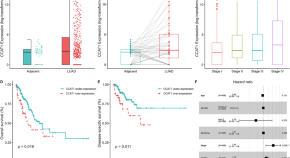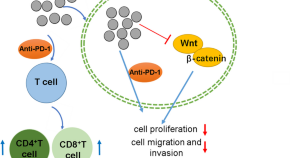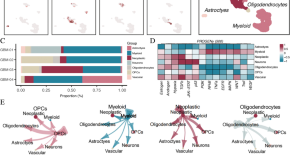Identification of RNA methylation-related lncRNAs for prognostic assessment and immunotherapy in bladder cancer—based on single cell/Bulk RNA sequencing data
Authors (first, second and last of 8)

Collection
These are exciting times for discovering the biological scope and the mechanisms of action for DNA and RNA molecules, which have a great impact on tumors. Epigenetic genomics involving DNA methylation and histone modification, play pivotal roles in development, cell differentiation, and cell identity. Inappropriate regulation of epigenetic mechanisms has been implicated in human cancers. Moreover, there has been a recent explosion of activity in the fields of RNA epigenetics and non-coding RNAs, which have become integral parts of the field of gene expression. Both genetics and epigenetic modifications contribute to determining the outcomes of regulatory gene expression systems. Identifying epigenetic factors involved in cancer, has proven to be a promising field of research, not only to improve the knowledge of risk factors for cancer, which could be of help for prevention, but also to improve the understanding and characterization of cancer, and to optimize and personalize the treatment. However, numerous actors are involved and the role of many of these are still poorly known. Since some changes in epigenetic genomics are significant in abnormalities during cancer development, the initial changes, dynamic and reversible properties, and diagnostic potential of epigenomic phenomena are subject to genome- and epigenome-wide association studies for therapeutic aims. The recent advancement of numerous small-molecule compounds of the epigenetic regulators is allowing to identify novel potential therapeutic approaches in the treatment of different malignancies. However, epigenetic-targeted therapy still needs to be expanded and studied in order to understand the mechanisms to improve the clinical outcomes.
Keywords:
Epigenomics; Epigenetic modifications; DNA methylation; Histone acetylation; Genomic imprinting; RNA editing; Neoplasms; Small-molecule compounds; Precision therapy; Theranostics; Drug candidate
Fourth Military Medical University, Xian, China
Dr. Tian Li devotes to the research on the mechanisms of and pharmacological strategies for cancers. He has a H-index of 30 and published more than 150 SCI, including JAMA Oncol, JAMA Pediatr, EClinicalMedicine, Cytokine Growth Factor Rev, Semin Cancer Biol, Drugs, J Pineal Res, Pharmacol Res, Ageing Res Rev, Cell Mol Life Sci, Neurology, et al.
Taihe Hospital, Hubei University Medicine, Shiyan, China
Dr. Min Sun is an associate chief physician in Hubei University of Medicine. He is devoted to the basic and clinical research of cancers. He has published SCI papers in J Hematol Oncol, Int J Surg, Biochem Pharmacol, Breast Cancer Res Treat, BMC Cancer.















